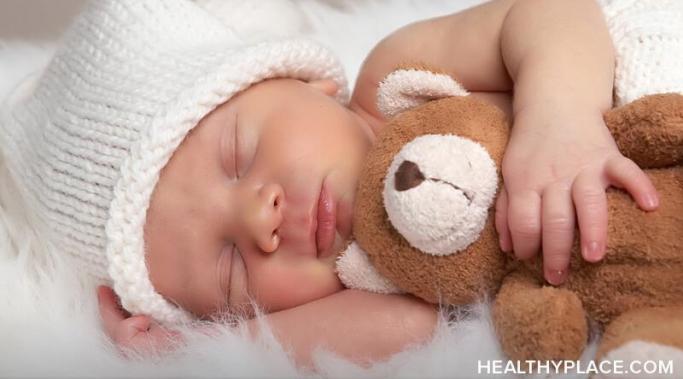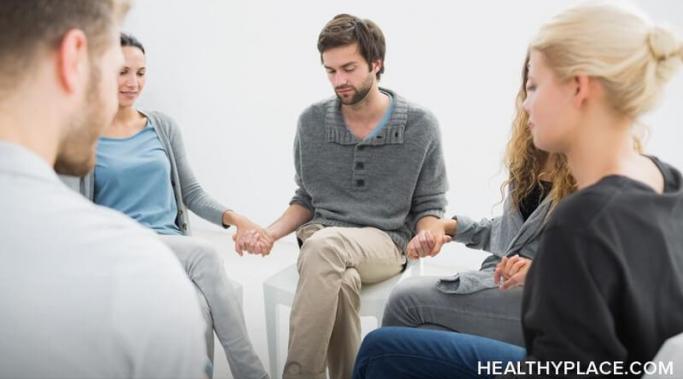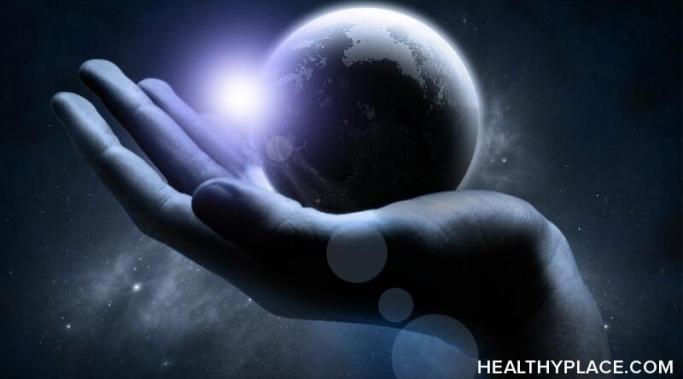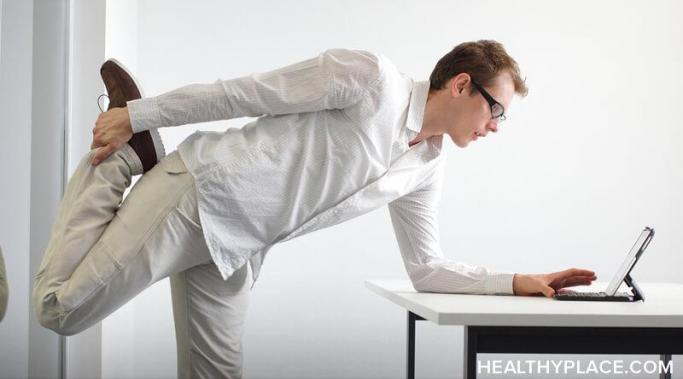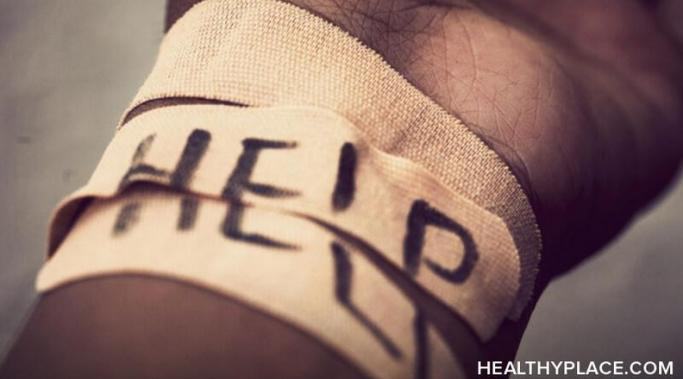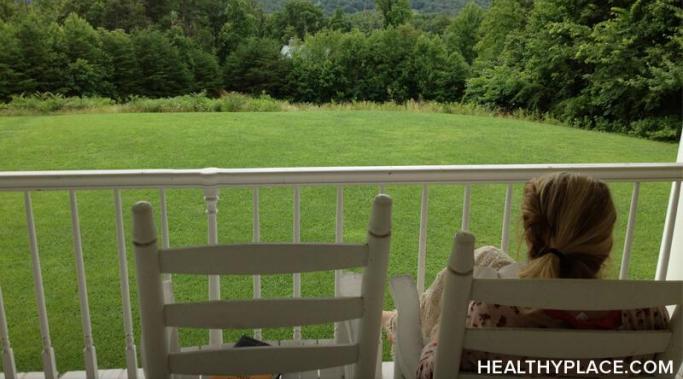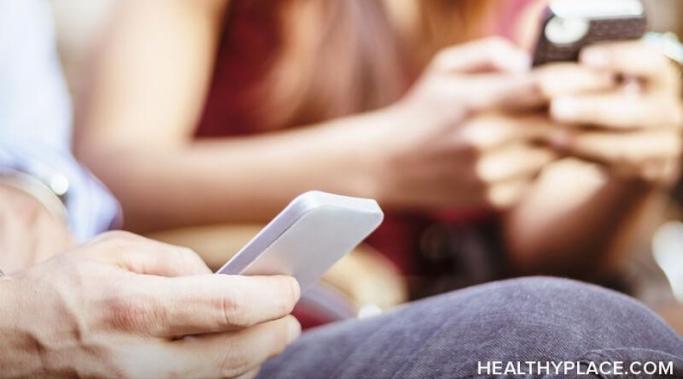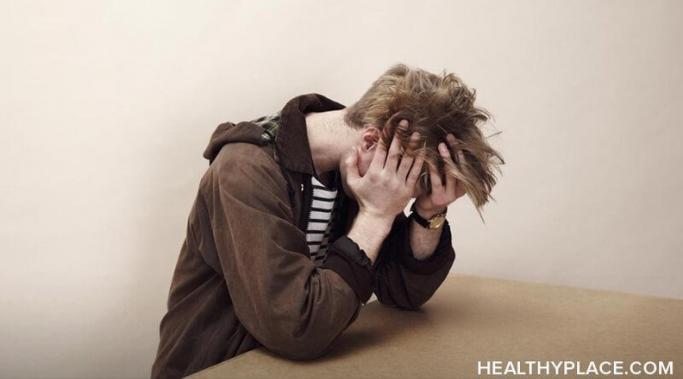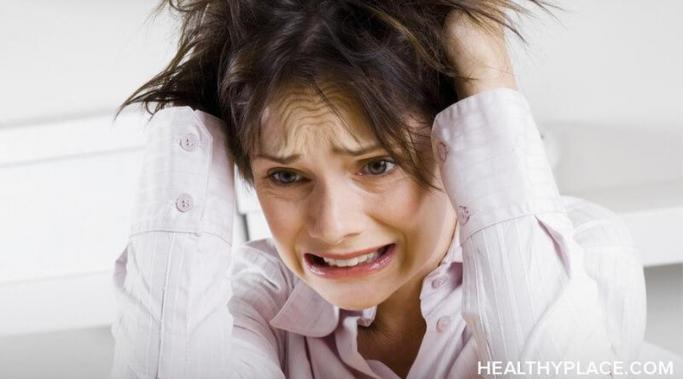Nighttime anxiety can make it hard to fall asleep and stay asleep. Somehow, anxiety can seem even louder during the night than it does during the day; perhaps because the world is quiet and you are trying to get some much-needed sleep. Nighttime worry is exhausting and can make you feel tired but wired the next day. It's natural to toss and turn, tangling with anxious thoughts and feelings, but doing so simply fuels them and makes them even more intrusive and obnoxious. Read on for a tip on how to handle nighttime anxiety and worrying at night.
Anxiety-Schmanxiety
This post is mainly geared not to others with anxiety, but to any allies who may be reading to better understand how to help someone with an anxiety disorder.
It's the ultimate conundrum. Mindfulness meditation can reduce the effects of anxiety on your life and wellbeing, but practicing mindfulness meditation when you're anxious can seem impossible. After all, anxiety involves negative, racing thoughts--worries, what-ifs, and worst-case scenarios--that keep you trapped in your mind. How are you supposed to quiet your mind with mindfulness meditation when anxiety is relentlessly loud? If anxiety is preventing you from using this tool to reduce it, take heart: the practice is a skill that becomes stronger the more you use it. Here are three tips to make mindfulness meditation work for you when you're anxious.
Anxiety hangs out in the body as much as it does in the mind. Many of the symptoms of anxiety are physical because we are one whole, united system: brain, body, and mind. Because of this, our entire being--thoughts, emotions, and body--is impacted by stress and anxiety. As annoying and life-disruptive as this is, it means that we have multiple ways to find it and heal it. You can reduce your symptoms by working with your body. Here are some ways you can ease the anxiety in your body both immediately and long-term.
Why is it important to avoid digital self-harm on the Internet? Is it possible to avoid it when the modern Internet is itself complicit in facilitating self-harm?
What do you think about accepting anxiety, that thing we hate? Acceptance is a powerful concept that can help us reduce anxiety. It isn't a modern trend, this latest craze in our attempt to manage stress, anxiety, depression, and everything else that challenges our mental health and wellbeing. It's actually an age-old practice with roots in Buddhism and other ancient traditions. It's a component of mindfulness, another concept with ancient heritage. In our modern era, acceptance is well-researched and part of legitimate therapeutic approaches like acceptance and commitment therapy. Yet, accepting anxiety is one of the most difficult concepts not just to understand but to put into practice.
Near the end of my last post, I briefly suggested the structure of the modern Internet itself contributes to digital self-harm, and that based on that structure, there can be no separation between the mere act of being online and digital self-harm.
Life after a panic attack or anxiety attack, no matter how intense, doesn't have to be miserable. Here's a look at the lingering effects of these experiences and how you can regain control.
The concept of “digital self-harm” is something that has recently entered the discourse surrounding mental health. It is a new enough concept that I feel that the majority of mental health advocates may not understand what this type of self-harm entails, and even those that do may be getting, what I argue, is a needlessly limited application of what the term could mean. In this post, then, I want to go into exactly what digital self-harm is (as is currently defined), my problems with that current definition, and its applications for those with anxiety.
A panic attack or anxiety attack is an intense but short-lived experience of gripping anxiety. These attacks can be severe, causing a host of miserable symptoms. While the actual attack doesn't last long, typically peaking in about 10 minutes but sometimes lasting a bit longer, the effects can continue and make life after a panic attack or anxiety attack miserable and difficult. Knowing what to expect during and after a panic attack can help you minimize and shorten the recovery time and move forward more easily and positively.
